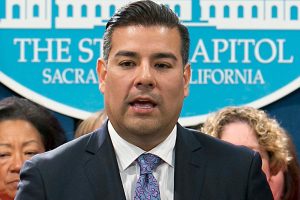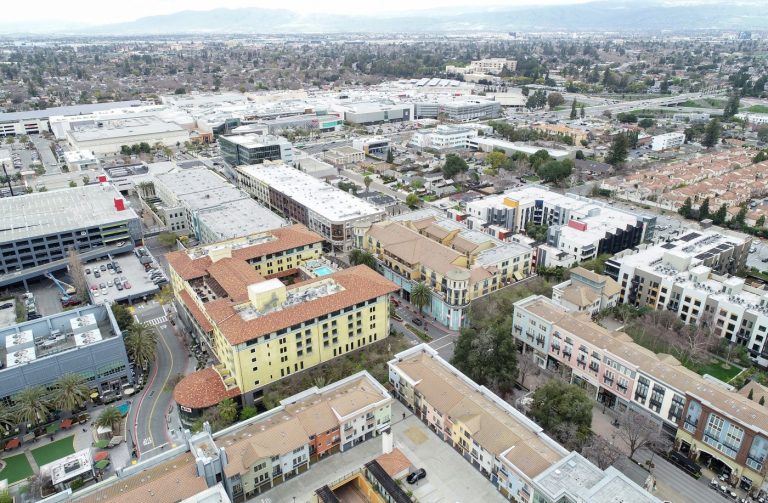Nǐ hǎo, jiāzhōu!
Hello, California!
We are the first two giant pandas to enter the United States in two decades. While it’s only been a few months since we relocated to the San Diego Zoo from southwest China, we’ve already met the governor. Indeed, we now feel so at home in California that we’re wondering whether we might vote in your November elections.
In asking this, we must reassure you that we are reluctant to get political.
The two of us are laid-back; our zookeepers describe Yun Chuan, a 5-year-old male, as “mild-mannered, gentle and lovable,” and Xin Bao, a 4-year-old female, as a “gentle and witty introvert.” And like many other Californians, we ignore the news and spend our time sunbathing and consuming as much grass (bamboo in our case) as we can get our paws on.
We also must walk a fine line as “envoys of friendship,” in the words of the Chinese government, which loans pandas to overseas zoos for $1 million a year. As diplomats, we represent a difficult client state that bullies its neighbors and inspires retaliatory tariffs and hateful rhetoric.
There are other reasons people might advise us to stay out of politics. We are non-humans now living in a country that ranks low in the global Animal Protection Index. And we are newcomers to an America so xenophobic that a majority of voters support mass deportation of immigrants. (Before JD Vance starts spreading lies about what we eat, let’s be clear — we are herbivores.)
Yet, despite all the ways in which we are outsiders, our very presence holds lessons for human. We, like you, are a vulnerable species trying to survive on an increasingly inhospitable planet. We are also living proof that — in this age of moral relativism and lie-based politics — some very important things remain black and white.
Like the fact that true democracy requires the representation and participation of all living things. Including us.
You, our human media, are full of phony accusations that foreigners are voting in this year’s elections. They aren’t, but why shouldn’t they be able to? Jurisdictions around the world open up local elections to non-citizens. San Francisco has done so for school board contests, for instance.
If we could participate in San Diego elections, we might support anyone who could curb the noise of jets flying low over us here in Balboa Park, on their way to the airport. Our participation also might raise questions about why we live rent-free in the expanded Panda Ridge complex while the city tears down encampments of the unhoused.
And how is it fair to exclude us from governance? Humans are less than 1% of the world’s biomass but have 100% of the world’s democratic rights. Plants are more than 80% of the biomass and unrepresented, even though humans couldn’t live without them.
Providing representation to animals and plants is not a new idea. There are efforts worldwide to imagine democratic systems for various beings, including the Multispecies Constitution Project at the L.A.-based Berggruen Institute, where this column’s usual author is a fellow.
Perhaps by incorporating the intelligence, experiences, and interests of other living things into governance, you humans will save ecosystems — and maybe yourselves. Some non-human creatures, like whales, are already conversing with you.
Related Articles
Sea lion found on California beach was shot; $20,000 reward offered
7 Bay Area alternatives to Moo Deng, the viral baby hippo
OnlyFans, trafficking and drug dealers: How a jaguar cub wound up in a California suburb
What’s next for avian flu? Genetic tests of California farmworkers could reveal viral evolution
7 horses euthanized at California race course due to infectious disease
If the two of us could talk with you directly, instead of through a journalist’s imagination, we might ask about the struggles of starting a family in California.
We are a couple facing expectations to breed. Yun’s grandparents lived at the zoo in the 2000s and had five cubs here, including his mother Zhen Zhen. But we probably won’t be that fertile. And we can’t know how long we’ll get to stay here, given the conflict between our birth country and yours.
But for now, we are Californians. Shouldn’t we have the same rights as all of you?
Joe Mathews writes the Connecting California column for Zócalo Public Square.












